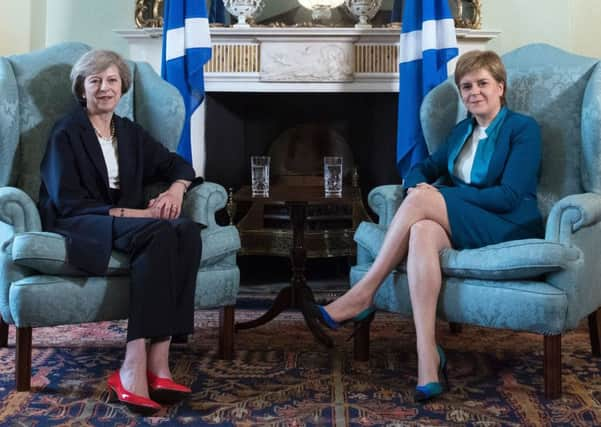Leader comment: May's Brexit proposal puts Sturgeon on the spot


It is clear that Mrs May is aware that the UK does not stand to benefit from such an arrangement, because she has set targets which she hopes will restrict the disadvantage suffered by the UK economy. First of all, she wants agreement with EU countries over the “freest possible trade” with the UK, and secondly, she wants the UK to strike its own deals with countries outside the EU, presumably offering a more competitive tariff on goods imported from those countries.
There are serious doubts over whether these objectives can be achieved. On the one hand, the UK wants special treatment from the EU, and on the other, it aims to undercut those countries on international trade. It’s a wish list destined to be denied by an EU which has shown little sympathy to the UK’s dilemma since the Brexit vote, although few would expect the weaker party in negotiations to emerge with the deal that they first seek.
Advertisement
Hide AdAdvertisement
Hide AdFurther detail of Mrs May’s strategy did not make her aims seem any more credible. She will give a final vote on a deal to MPs, but has failed to give an adequate response to the obvious question of what will happen if Parliament rejects the proposal. The future of the country’s relationship with Europe is at risk of turning into an opportunity for some to try to bring down the government.
For Scotland, there are of course further implications. First Minister Nicola Sturgeon says that the exit from the single market makes a second independence referendum “undoubtedly” closer. It would have been a surprise if she had said anything other than that, because this has been her position since the Brexit vote, sticking to her belief that Scotland’s interests are best served by staying in the single market and that her role is to pursue all avenues she can to ensure Scotland is best served.
This leaves the First Minister in an awkward position. A second referendum was first proposed as a means of staying within the EU, but there is no convincing evidence to date that Scotland would be admitted, and certainly no guarantee as yet. And if entry was to be offered, what would the EU require in return? Adherence to the Schengen Area agreement? Use of the euro?
So if there was to be a second referendum to ensure Scotland’s democratic will was served and the result was to take Scotland out of the UK, that would leave Scotland out of the EU and the UK. Given the timescales, it is extremely unlikley that confirmation of or conditions of EU admittance will be known by the time of any second referendum.
Ms Sturgeon therefore will have a job on her hands explaining with any certainty how a vote for an independent Scotland can be known to be in its best interests.